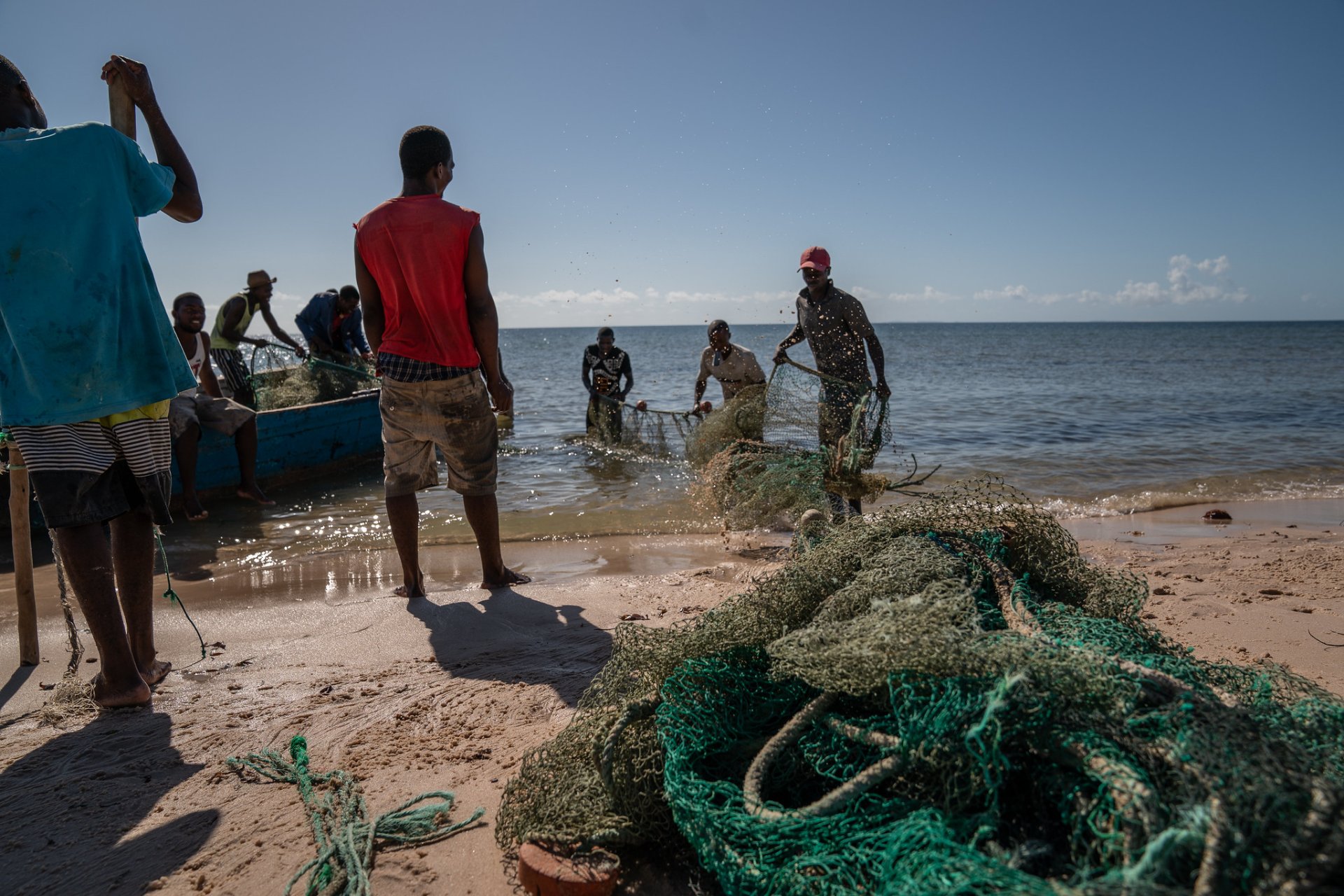Fisheries and Climate Change Project [NDF C50]
 Photo: RARE Conservation
Photo: RARE Conservation
The overall objective is to strengthen Mozambican capacity for management of resources and to reduce poverty among coastal artisanal fisheries of Mozambique supported by policies and institutions at national, provincial, district and local levels.
REGION
Africa
PROJECT REFERENCE
NDF C50
DURATION
2015 to 2019
NDF FINANCING
EUR 4.0 million
FINANCING TYPE
Grant
IMPLEMENTING AGENCY
World Bank
NDF CONTACT
info@ndf.int
OBJECTIVE
The overall objective is to strengthen Mozambican capacity for management of resources and to reduce poverty among coastal artisanal fisheries of Mozambique supported by policies and institutions at national, provincial, district and local levels. The immediate objective is to demonstrate a scalable approach to reduce vulnerability to climate change, while improving fisheries and natural resources management outcomes. To facilitate social resilience, the project will support a process in which local communities self-organize through their fisheries councils, and prepare and implement their own natural resource management regimes creating the territorial user rights zones and no-take boundaries (with scientific advice from project staff). To build economic resilience, the project will commission site-specific research studies on livelihoods options such as aquaculture, mariculture, and tourism early enough in the study so that they can be piloted and tested by site to determine their efficacy in increasing economic resilience. The creation of no-take-zones is known to bring about relatively rapid recovery of local ecosystems and will provide clear biodiversity conservation benefits. Enhanced management of mangroves has a furthermore good potential for contributing to climate change mitigation. The Project will produce the following six major results:
-
Establishment of rights-based management to enhance social resilience to climate change;
-
Fisheries management improved through use of Territorial User Rights for Fishers approach;
-
Local livelihoods improved and diversified (Economic resilience to climate change);
-
Increased capacity within Ministry of Fisheries;
-
Marine ecosystems, habitats, and biodiversity improved (Ecological resilience to climate change);
-
National policy shifts to rights-based fisheries management facilitated.
The NDF funding will be provided as joint co-financing to the World Bank. Project implementation is the responsibility of the Institute for Development of Small-scale Fisheries under the Ministry of Fisheries. The international NGO Rare Conservation will provide technical assistance. Procurement of consulting services will be done according to World Bank procurement rules.
FINANCING
Total cost of the project will be EUR 6.27 million with NDF contributing EUR 4.0 million. The International NGO Rare will contribute EUR 1.68 million, while World Bank provides EUR 152,000. Government of Mozambique contribution is in kind and valued at EUR 0.44 million.
Project completed in December 2019. Actual disbursed amount EUR 4,000,000.00.
NDF CONTACT
info@ndf.int
MORE INFORMATION
Rare in Mozambique. Empowering Fishers, Inspiring Change, Catalyzing Community Resilience






